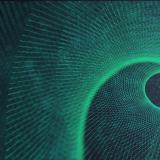The Research Involving Human Embryos Act 2002 requires that research on human embryos can only be conducted under a licence issued by the National Health and Medical Research Council (NHMRC) Embryo Research Licensing Committee (ERLC).
Licensable activities
Licensable activities include:
- some uses of excess assisted reproductive technology embryos
- the creation or use of certain other human embryos (for embryo models, refer to the embryo model decision flowchart)
- research or training involving fertilisation of a human egg by a human sperm
- other activities specified in the legislation.
Information kit
The following Information kit summarises the regulatory framework:
How to apply
Complete the relevant application form below. The instructions will help you to fill out the application. The consent checklists and additional information about obtaining proper consent will help you develop a consent process and documents that satisfy the legislative requirements.
- Standard Licence application form
- Embryoid Licence application form
- Instructions for completing the standard application form
- Consent Checklist for licensed activities using excess assisted reproductive technology (ART) embryos
- Consent checklist for other licensed research
- Additional information about obtaining proper consent
Refer to the Prohibition of Human Cloning for Reproduction Act 2002 (PHCR Act) and the Research Involving Human Embryos Act 2002 (RIHE Act).
Embryo biopsy training licence applications
If you are applying for a licence to conduct training in embryo biopsy using excess ART embryos, you can fill out the shorter application form below. Refer to the instructions for more information. (Documents available under Downloads below).
- Simplified licence application form for embryo biopsy training using excess ART embryos
- Instructions for completing the simplified application form
- Consent Checklist for licensed activities using excess ART embryo
- Additional information about obtaining proper consent
Objective Criteria
The Objective Criteria describe the developmental characteristics of embryos which can be determined to be unsuitable for implantation (see paragraph (b) of the definition in section 7 of the RIHE Act). If a research project requires the use of fresh embryos the Objective Criteria must be used to determine which embryos can be donated to the licensed research.
Criteria for determining whether a licence should be issued
The RIHE Act sets out criteria that ERLC must consider before it issues a licence authorising the use of excess ART embryos or the creation and/or use of other embryos.
According to these criteria, the NHMRC Licensing Committee must be satisfied that:
- appropriate protocols are in place to enable proper consent to be obtained before an excess ART embryo or human egg is used or other embryos are created or used and to ensure adherence to any restrictions specified by the people who gave consent to the use
- the proposed project has been considered and approved by a Human Research Ethics Committee that is constituted in accordance with, and acting in compliance with, the NHMRC's National Statement on Ethical Conduct in Human Research (the National Statement).
ELRC must also have regard to:
- restricting the number of excess ART embryos, other embryos or human eggs to that likely to be necessary to achieve the goals of the research or activity proposed in the application
- the likelihood of significant advance in knowledge or improvement in technologies for treatment as a result of the use of excess ART embryos or human eggs or the creation or use of other embryos, proposed in the application, which could not reasonably be achieved by other means
- any relevant guidelines, or parts of guidelines, issued by the NHMRC, as prescribed in the Regulations. Currently the relevant Guidelines are the National Statement and the Ethical Guidelines on the use of Assisted Reproductive Technology in Clinical Practice and Research.
- the Human Research Ethics Committee's assessment of the application.
Proper consent for the use of excess ART embryos and human eggs and the creation and/or use of other embryos
The legislation makes it illegal to use an excess ART embryo or human egg or to create or use an embryo for licensed research without consent having been provided, in writing, by all responsible persons.
The legislation defines the people responsible for an excess ART embryo to be used in a general licence as:
- the gamete providers and their partners, if any, at the time the gametes were donated
- the woman for whom the embryo was created for the purpose of achieving her pregnancy
- her partner if different from the gamete provider.
The legislation defines the person responsible for a human egg as the woman who was the biological donor of the egg.
In relation to embryos created under a licence, each person whose reproductive material, genetic material or cell was donated for use under the licence is a responsible person who must give consent.
Before consenting, all responsible persons must have been provided with written information describing the proposed activity.
Before issuing a licence, ERLC must be satisfied that the consent protocols are appropriate and that the donors will receive appropriate information to enable them to make an informed decision about whether to donate the embryo, egg, genetic material or cell to research.
Guidelines also require that counselling is offered and an explanation about the proposed activity is given.


